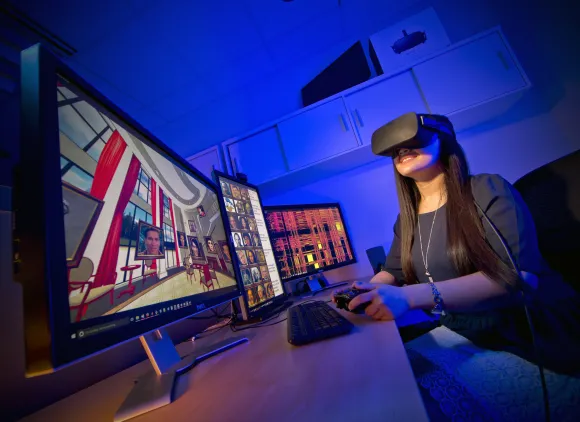 On this page
On this page
Expeditions in Computing topics
Expeditions in Computing supports long-term, cutting-edge research that looks ahead by at least a decade. These large-scale projects often involve teams from several departments or institutions. The projects explore challenging research problems with the potential to yield tremendous benefits to society.
Past awards have covered topics including:
- Sustainability.
- Robotics.
- Wireless/internet.
- Limits of computation.
- Molecular programming/synthetic biology.
- Health care and well-being.
- Big Data.
- Formal methods/verification.
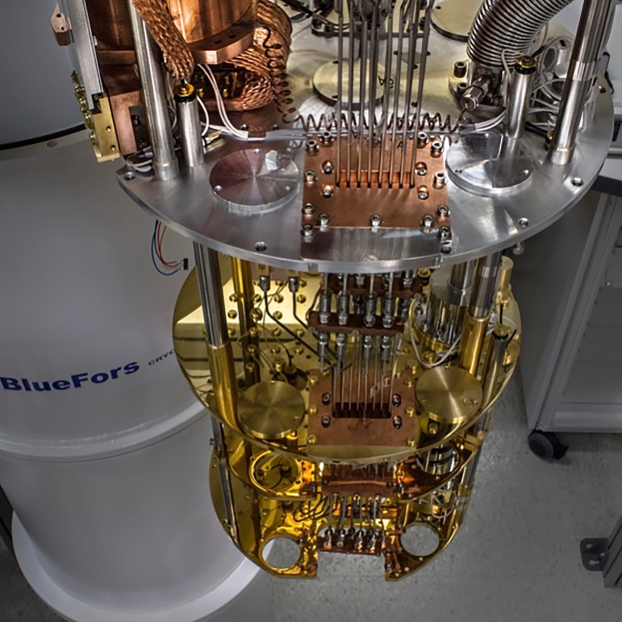
Credit: Yongshan Ding, University of Chicago
2024 Expeditions in Computing awards
Projects
U.S. National Science Foundation Expedition in Computing: Carbon Connect- An Ecosystem for Sustainable Computing
Lead institution: Harvard University
Lead principal investigator: David Brooks
NSF Expeditions in Computing: Learning Directed Operating System--A Clean-Slate Paradigm for Operating Systems Design and Implementation
Lead institution: The University of Texas at Austin
Lead principal investigator: Aditya Akella
NSF Expeditions in Computing for Computational Decarbonization of Societal Infrastructures at Mesoscales
Lead institution: University of Massachusetts Amherst
Lead principal investigator: Prashant Shenoy

2022 Expeditions in Computing awards
Projects
Mind In Vitro: Computing With Living Neurons
Lead institution: University of Illinois Urbana-Champaign
Lead principal investigator: Mattia Gazzola
DISCoVER: Design and Integration of Superconducting Computation for Ventures Beyond Exascale Realization
Lead institution: University of Southern California
Lead principal investigator: Massoud Pedram

Credit: Andrew Dou at Gazzola Lab, UIUC
2020 Expeditions in Computing awards
Projects
Global Pervasive Computational Epidemiology
Lead institution: University of Virginia
Lead principal investigator: Madhav Marathe
Understanding the World Through Code
Lead institution: Massachusetts Institute of Technology
Lead principal investigator: Armando Solar-Lezama
Coherent Ising Machines (CIMS) for Optimization, Machine Learning and Neuromorphic Computing
Lead institution: Stanford University
Lead principal investigator: Hideo Mabuchi
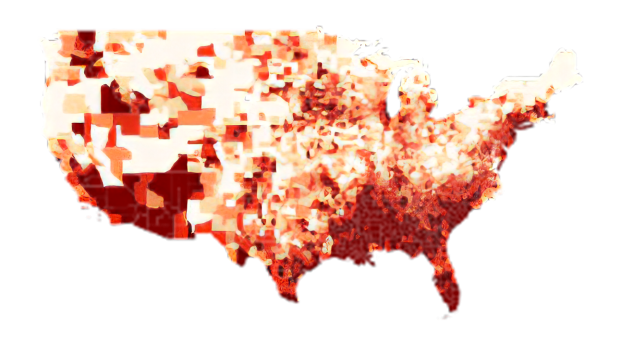
Credit: University of Virginia Biocomplexity Institute
2018 Expeditions in Computing awards
Projects
Secure, Real-Time Decisions on Live Data
Lead institution: University of California, Berkeley
Lead principal investigator: Ion Stoica
Enabling Practical-Scale Quantum Computing
Lead institution: The University of Chicago
Lead principal investigator: Frederic Chong
Computational Photo-Scatterography: Unraveling Scattered Photons for Bio-imaging
Lead institution: Rice University
Lead principal investigator: Ashutosh Sabharwal
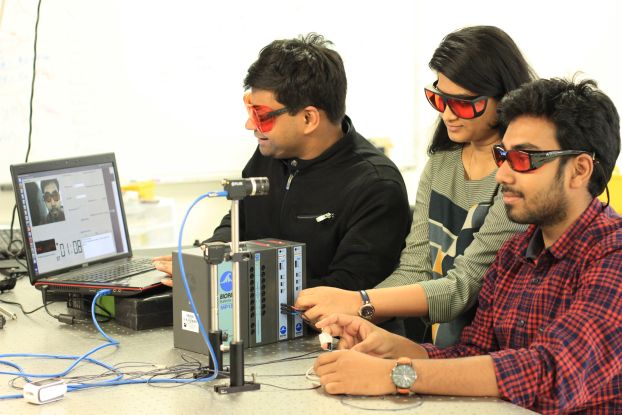
Credit: Vivek Boominathan, Rice University
2016 Expeditions in Computing awards
Projects
The Science of Deep Specification
Lead institution: Princeton University
Lead principal investigator: Andrew Appel
Evolvable Living Computing—Understanding and Quantifying Synthetic Biological Systems' Applicability, Performance, and Limits
Lead institution: Boston University
Lead principal investigator: Douglas Densmore
CompSustNet: Expanding the Horizons of Computational Sustainability
Lead institution: Cornell University
Lead principal investigator: Carla Gomes
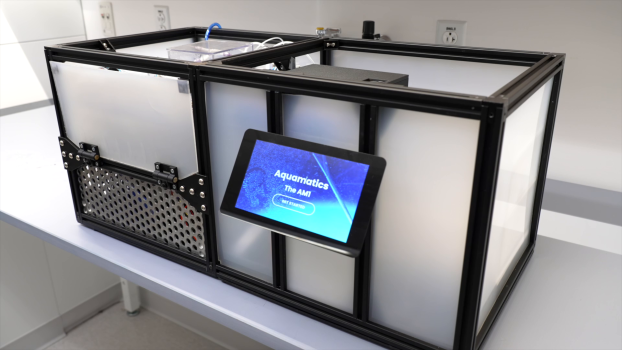
Credit: BU Hardware 2022 iGEM team
2013 Expeditions in Computing awards
Projects
Molecular Programming Architectures, Abstractions, Algorithms, and Applications
Lead institution: Caltech
Lead principal investigator: Erik Winfree
Visual Cortex on Silicon
Lead institution: Penn State
Lead principal investigator: Vijaykrishnan Narayanan

Credit: UC San Diego Jacobs School of Engineering
2012 Expeditions in Computing awards
Projects
ExCAPE: Expeditions in Computer Augmented Program Engineering
Lead institution: University of Pennsylvania
Lead principal investigator: Rajeev Alur
Making Sense at Scale with Algorithms, Machines and People (AMPLab)
Lead institution: University of California, Berkeley
Lead principal investigator: Michael Franklin
An Expedition in Computing for Compiling Functional Physical Machines
Lead institution: Massachusetts Institute of Technology
Lead principal investigator: Daniela Rus
Making Socially Assistive Robots
Lead institution: Yale University
Lead principal investigator: Brian Scassellati
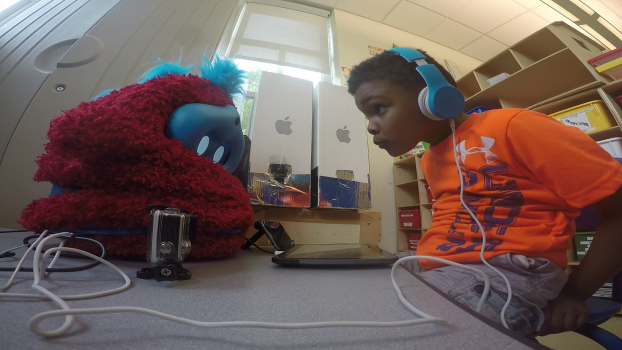
Credit: Personal Robots Group, MIT Media Lab
2010 Expedition in Computing awards
Projects
Variability-Aware Software for Efficient Computing With Nanoscale Devices
Lead institution: University of California San Diego
Lead principal investigator: Rajesh Gupta
Understanding Climate Change: A Data-Driven Approach
Lead institution: University of Minnesota
Lead principal investigator: Vipin Kumar
Computational Behavioral Science: Modeling, Analysis and Visualization of Social and Communicative Behavior
Lead institution: Georgia Tech
Lead principal investigator: James M. Rehg
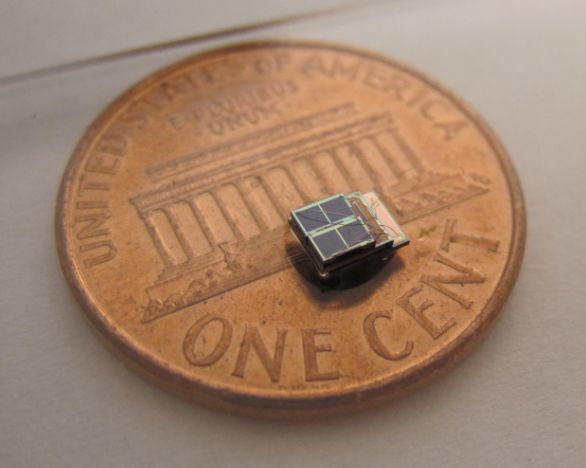
Credit: Dennis Sylvester, University of Michigan ECE
2009 Expeditions in Computing awards
Projects
RoboBees: A Convergence of Body, Brain and Colony
Lead institution: Harvard University
Lead principal investigator: Robert Wood
Customizable Domain-Specific Computing
Lead institution: UCLA
Lead principal investigator: Jason Cong
Formal Analysis of Complex Systems
Lead institution: Carnegie Mellon University
Lead principal investigator: Edmund Clarke
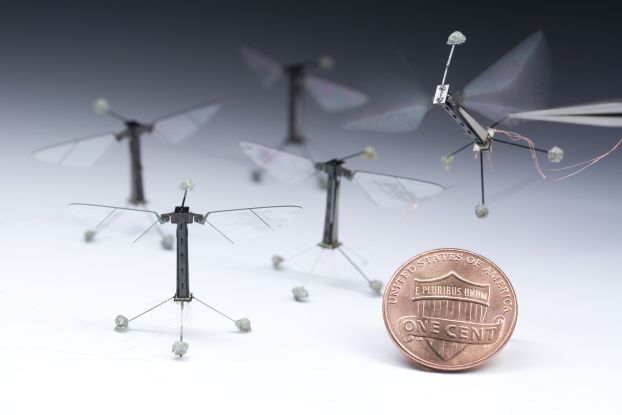
Credit: Photos courtesy of Kevin Ma and Pakpong Chirarattananon, Harvard School of Engineering and Applied Sciences
2008 Expeditions in Computing Awards
Projects
Understanding, Coping With and Benefiting From Intractability
Lead institution: Princeton University
Lead principal investigator: Sanjeev Arora
Computational Sustainability: Computational Methods for a Sustainable Environment, Economy and Society
Lead institution: Cornell University
Lead principal investigator: Carla Gomes
Open Programmable Mobile Internet 2020
Lead institution: Stanford University
Lead principal investigator: Nick McKeown
Molecular Programming Project
Lead institution: Caltech
Lead principal investigator: Erik Winfree
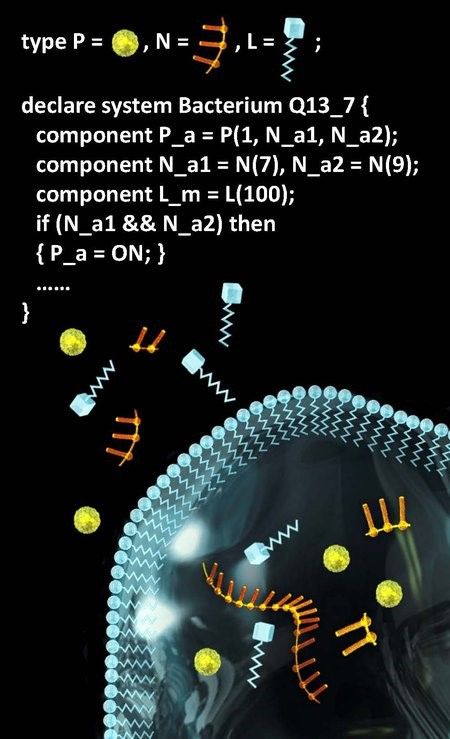
Credit: Lulu Qian, Caltech

